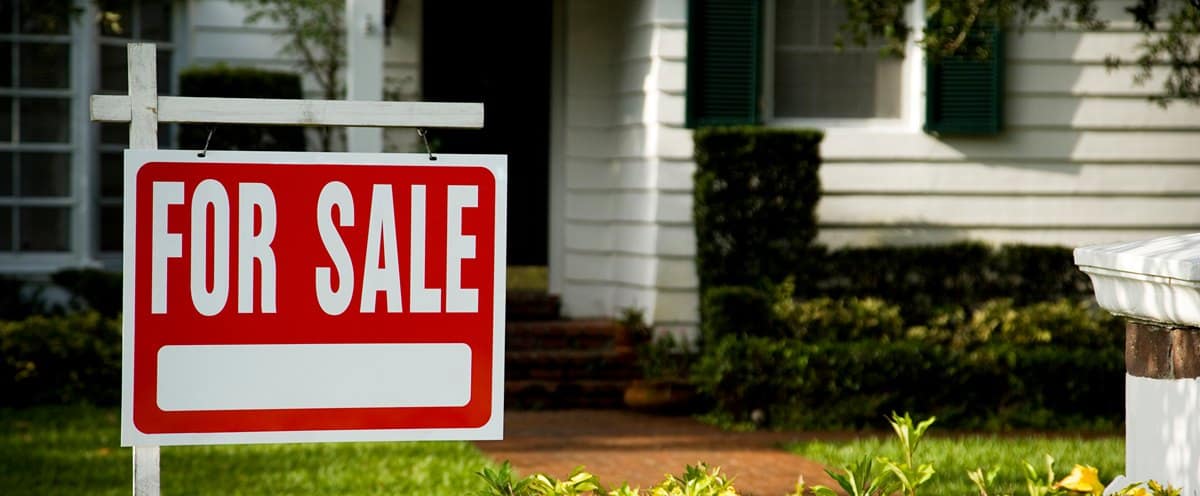Listen To This Page:
Quick Navigation:
- Why Should You Sell Or Keep Your House in Divorce?
- Should I Sell the House Before or After the Divorce?
- Can you Sell a House if One Partner Refuses?
- How Can I Stay in My Home After a Divorce?
- How Do You Calculate House Buyout in a Divorce?
- What if One Person Wants the House but Can’t Afford It?
The divorce process can be difficult and emotional, especially when deciding whether or not you should have a home sale.
Considering selling your house, it’s essential to consider all angles before making a final decision.
On the one hand, selling may help to provide financial relief during this tough time. On the other hand, you may have sentimental attachments that make parting with your home more difficult.
It’s also important to consider market conditions and prices in your area before making any decisions.
Ultimately, an individual choice should be carefully considered before taking action.
Divorce involves many complex decisions, including what to do with the marital home. Selling the house during or after the divorce has its advantages, such as providing both parties with the ability to divide assets and move on. However, keeping the home may also have benefits, particularly for stability. The timing of the sale is crucial and can be impacted by the divorce decree, which outlines each party’s obligations and rights concerning the property.
Multiple options exist for those who want to retain the house but face financial constraints. Because divorce can also impact capital gains tax, it’s essential to consult professionals to navigate this significant life change. Our Arizona family law attorneys are well-versed in property division during divorce and are available to guide you through your options.
Considering a Divorce?
Get Immediate Help from Our Arizona Family Law Attorneys.
We are Available to Talk Now.
Or, Continue Reading Below About:
Divorcing? Should You Divorce Your Home, Too?
Why Should You Sell Or Keep Your House in Divorce?
Selling your home is often tricky, but it can be the right option for some people.
However, keeping the marital or family home might make more sense in certain circumstances.
Selling your home allows you to divide up the proceeds of the sale and move on with your lives separately.
It also eliminates ongoing property taxes and upkeep expenses, which can become a financial strain.
Also, selling your house in divorce helps avoid further entanglement or division of assets between spouses.
Doing so will provide both parties closure and help make the transition into new lives easier.
Ultimately, selling your house in this situation is often an effective way to move forward with financial stability and emotional peace of mind.
Should I Sell the House Before or After the Divorce?
When deciding whether to sell the house before or after a divorce, there are pros and cons to each approach—selling the house before the divorce can be beneficial because it allows both parties to divide the proceeds immediately and move on with their lives.
However, it also requires both parties to agree on a sale price and timeline, which may not be feasible.
On the other hand, selling the house after the divorce may provide more flexibility in setting a sale price and timeline, but it also means that one party may have to buy out the other’s interest for the sale to proceed.
Ultimately, discussing both approaches with an experienced attorney who can help you decide what is best for your particular situation is best.
An attorney can help you understand each approach’s potential benefits, drawbacks, and other options. Ultimately, ensuring that your decision is in your best interests and that you understand all possible consequences is vital.
How Does my Divorce Decree Affect My Ability to Sell My House Before or After a Divorce?
A divorce decree can significantly impact the ability to sell a house before or after a divorce.
Depending on the divorce terms, selling the house may require both parties to sign off on the sale for it to be valid.
Suppose there are other issues relating to property division, such as who gets custody of certain items.
In that case, this could also affect the ability to sell a house before or after a divorce. In addition, if one party is unwilling to sign off on the sale, it could create obstacles that make it difficult or even impossible for the sale.
Before attempting to sell a home during or after a divorce, it is essential to understand the implications of the divorce decree and any other relevant legal paperwork.
Can I Sell a House in My Name Before a Divorce?
Selling in one’s name before a divorce is possible, depending on the ownership status.
Generally speaking, discussing this process with an attorney before taking any legal action is best.
If both spouses are on the deed and one spouse wishes to stay in the house, they may need to buy out their partner’s share before attempting to resell it.
If only one spouse is on the deed, that person can likely sell the home without involving their soon-to-be former partner.
In either case, it is crucial to understand the local rules regarding divorce proceedings to ensure that all parties are appropriately represented during negotiations. Additionally, consulting a real estate agent can help streamline the process so that the sale goes smoothly and quickly.
The Best Time To Be Selling Due To A Divorce
The best time to sell your house due to a divorce is during the summer when the market is at its peak.
This means buyers will have more money available and will be more likely to make an offer.
Additionally, during this time of year, people often look for new places and may be more willing to consider your property as an option.
Furthermore, with summer comes longer days, meaning you will have more time for showings and open houses.
Finally, summer is usually accompanied by less competition from other sellers in the area, which can help increase your chances of selling quickly.
All things considered, the best time to sell due to a divorce is much easier during summer than any other season.
Can you Sell a House if One Partner Refuses?
A house can be sold in Arizona even if one partner refuses, though it is more complicated than if both parties agree.
A court order from a judge must take the estate off the market and have it sold, which can be obtained through a partition action.
This process requires that all parties involved in the sale be served with notice so they can respond.
The court will then decide whether or not to sell the house based on their assessment of each party’s rights and interests.
In most cases, this process will ultimately result in a sale, but there is no guarantee that it will go as planned.
It’s important to always consult with an experienced attorney before attempting to sell when one partner refuses in Arizona.
How Can I Stay in My Home After a Divorce?
Staying in your home can be difficult, but you can take a few steps to make it possible.
- First, talk to your spouse about who will stay in the home and ensure it is agreed upon. You may also need to modify the ownership or rental agreement if you plan on staying in the home.
- Additionally, discussing any financial issues arising from staying home is essential. This includes determining who will pay the mortgage, taxes, and insurance.
- Finally, it is essential to create a budget and stick to it to ensure you can afford all the necessary living expenses while living in the home after your divorce.
Following these steps can help make sure you can stay in your home after a divorce.
Can I Be Forced into Selling a Joint-Owned House?
Depending on the circumstances, it is possible to be forced into selling a joint-owned house.
If both parties own the house equally and one party wishes to sell, the other party may have no choice but to agree to the sale.
This can be especially true if one party is willing to pay off any outstanding debts associated with facilitating a sale.
Additionally, suppose significant financial or legal issues are associated with the property. In that case, a court might issue an order forcing both parties to sell to resolve those issues.
In any case, all owners of a joint-owned property must understand their rights and obligations related to ownership and potential sales to protect their interests.
How Do You Calculate House Buyout in a Divorce?
Several factors must be considered when calculating a house buyout in a divorce.
- First, the total value of the home must be determined.
- This can be done using an appraiser or a real estate agent familiar with the local market.
- Next, any mortgages and other financial obligations attached to the property must be considered, as well as any equity built up in the home over time.
- Once all of these factors have been considered, the buyout amount can be determined.
In some cases, couples may choose to hire a mediator to help them negotiate an acceptable buyout agreement, or they may agree to split any proceeds from the sale of the property equally.
No matter what approach is used, both parties must understand their rights and responsibilities associated with the buyout process before signing any documents or making any agreements.
How Does Divorce Affect Capital Gains Tax?
Divorce can have a significant impact on this type of tax.
When a couple divorces, the assets they own are divided between them.
Any capital gains realized on these assets must be calculated separately for each spouse and reported on their individual tax returns.
Furthermore, when one of the spouses sells an asset that was received as part of the divorce settlement, they may be liable for taxes due to the difference between their cost basis and the sale price.
In addition, if one spouse retains an asset that has appreciated in value since the divorce was finalized, they will be responsible for paying capital gains tax on any profits earned from its sale at a later date.
Therefore, consider how divorce might affect your capital gains tax liability before making any decisions.
What if One Person Wants the House But Can’t Afford It?
This is a difficult situation to be in, but there are still options available.
One option would be to look into a loan or mortgage and see if they can get the funds necessary to purchase the property.
If that’s not possible, then renting might be an option.
It’s essential to consider all the pros and cons and ensure you’re comfortable with any decision.
There could also be a chance for a rent-to-own arrangement, which would give the person some time to save up for the down payment on the house.
No matter what, it’s crucial to research, talk to experts, and ensure that you understand your financial obligations before making any decision.
Contact Our Family Law Attorney Today, So We Can Assist You in Making the Best Choice for Yourself and Your Future
Are you in need of family law assistance? Our experienced divorce attorneys are here to help.
We understand that making the best choice for yourself and your future can be difficult, so we strive to provide personalized solutions tailored to your needs.
Our attorneys have extensive experience in divorce and how to navigate the choice of selling your house after a divorce.
We will listen carefully to your concerns and guide you through the legal process while advocating for your rights.
Contact our family law attorneys today at 602-825-2500, so we can assist you in making the best choice for yourself and your future.

Attorney Darin Colburn has experienced first-hand just how difficult going through a family law matter such as divorce is when his parents divorced when he was 6 years old. Twenty years later, he has devoted his entire legal career to helping those facing similar issues. Darin attended the University of Arizona and graduated Cum Laude from the Eller College of Management. Darin is an experienced trial attorney that excels in high-net-worth divorce, complex business valuations, and messy child custody disputes.
Always Available 24/7 for Legal Help
Schedule an Appointment Today!
Call Us Now to Speak with an Attorney (602) 825-2500
Real Client Reviews
Below are just a few of what our clients have to say!











